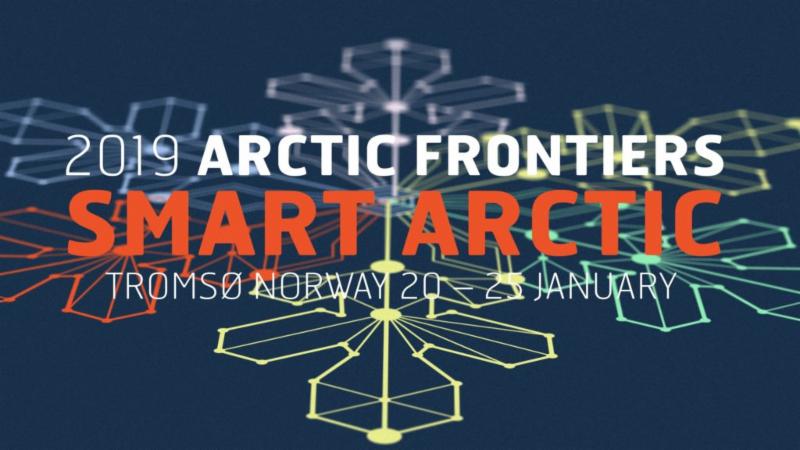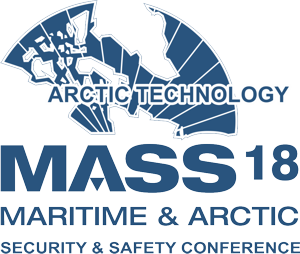|
|
|
|
|
|
|
|
Media
US Carriers Are Operating in the Arctic Circle for the First Time in Decades. A U.S. Navy aircraft carrier is operating north of the Arctic Circle for the first time in twenty seven years. The USS Harry S. Truman and its escorts are currently operating in the Norwegian Sea, practicing cold weather operations-and acting as a not so subtle hint to Russia. During the Cold War, the U.S. Navy routinely operated north of the Arctic Circle. In the event of war, the Navy would have sent several carrier battle groups into the Norwegian Sea to attack Soviet naval facilities in the Murmansk region. Popular Mechanics
 Climate Change Reduces Snow Cover: The Urgent Threat to Arctic Plants Climate Change Reduces Snow Cover: The Urgent Threat to Arctic Plants. The research establishes the threat to Arctic plants from climate change, specifically due to the reduction in snow cover. The paper is called "Snow cover is a neglected driver of Arctic biodiversity loss", and has been published in the journal Nature Climate Change. The new research used remote sensing and species distribution models to show the impact of winter on the future of Arctic plants. SciTech Europa
Web-Based Open Source Dashboard of North Pole. It's called ArcCI (or Arctic CyberInfrastructure) and promises to combine the thousands of images that have been taken along the years of the Arctic Ocean into one global database that will help scientists and the world see the physical changes occurring in the region including ice loss. The hope is that this web-based repository will allow researchers to spend more time analyzing information rather than just collecting and processing data. Science Daily
|
|
Future Events
Towards a Roadmap for Coordinated Arctic Observing, October 24, 2018 (Berlin, Germany). The side event is a follow up to the Arctic Observing Summit held in June 2018. The theme for the AOS was "Business Case for a Pan-Arctic Observing System." The first part of the session will demonstrate the value of Arctic observations, linking these to relevant Societal Benefit Areas. The second part will show how Arctic long-term observing systems are linked to and support decision-making from local to global scales. In the summing up panel, calls to action to the Arctic Science Ministerial will be formulated. This event is convened by the Sustaining Arctic Observing Networks (SAON) initiative of the Arctic Council, the European Commission, and the Arctic Observing Summit (AOS), an activity jointly overseen by SAON and the International Arctic Science Committee (IASC).
Arctic Science Forum Associated with the 2nd Arctic Science Ministerial, October 25, 2018 (Berlin, Germany and via webcast). How vulnerable and how resilient are nature and the people of the Arctic region? How well do we understand the regional and global dynamics which are driving change in the Arctic? What impact will change in the Arctic have on us? These and other questions are the focus of this two-day conference. It will take interdisciplinary research in the Arctic to gain an understanding of past and future processes - a complex and cost-intensive venture. This makes an international network of Arctic research so important for delivering better results. Cooperation in research, the exchange of data, collaborative observation and monitoring schemes - international cooperation is imperative in research on the Arctic. Here is a link to the October 25th livestream.
Arctic Science Ministerial, October 25-26 (Berlin, Germany). On 25 and 26 October, science ministers, researchers and representatives of international organizations and Arctic Indigenous peoples will come together in Berlin to discuss the future course of Arctic research. A Science Forum will take place on the first day of the conference. A Ministerial Meeting will take place on the second day with the aim of producing a Joint Statement on international collaboration in the Arctic. The interim report of the Second Arctic Science Ministerial (ASM2) is now available for download at the ASM2 website. Please click here to download.
aim of this Government of Canada and the Government of Newfoundland and Labrador supported international conference is to promote stakeholder collaboration, technological innovation, harsh environment research & development, and world-class education efforts that are contributing to both Maritime and Arctic issues. This two day conference will draw a diverse group of speakers and attendees representing government, military, Canadian and U.S. Coast Guard, industry, academic leaders, Northern Leaders, research and other key stakeholders. We hope you can join us to be a part of this important dialogue
American Geophysical Union Fall meeting, December 10-14, 2018 (Washington, DC USA). The AGU 2018 Fall Meeting will mark another dynamic year of discovery in Earth and space science, serve as the advent of AGU's Centennial year, and provide a special opportunity to share our science with world  leaders in Washington, D.C. As the largest Earth and space science gathering in the world, the Fall Meeting places you in the center of a global community of scientists drawn from myriad fields of study whose work protects the health and welfare of people worldwide, spurs innovation, and informs decisions that are critical to the sustainability of the Earth.
ArcticNet: Annual Scientific Meeting 2018, December 10-14, 2018 (Ottawa, ON Canada). Canada's North is experiencing unprecedented change in its sea and terrestrial ice, permafrost and ecosystems under the triple pressures of climate change, industrialization and modernization. The impacts of these pressures can be seen on food and energy security, shipping, sovereignty, northern community health and well-being, and sustainable development and resource exploitation. All these issues have brought the North to the forefront of national and international agendas. Building on the success of its previous Annual Scientific Meetings and International Arctic Change Conferences, the Arctic Network of Centers of Excellence announces the 14th ArcticNet Annual Scientific Meeting.
 Arctic Frontiers, January 20-25, 2019 (Tromso, Norway). The Arctic Frontiers is a global scientific conference on economic, societal, and environmental sustainable growth. This year's theme will be "Smart Arctic," with a pan-arctic emphasis, and an effort to build new partnerships across nations, generations and ethnic groups. Arctic Frontiers provides a forum for dialogue and communication between science, government and industry. The plenary program will have five main sessions: State of the Arctic, Blue Growth, Smart Solutions, Bridging the Gap, and Arctic business prospects. An abstract-driven science program will address Plastics in the Ocean, the Future of Governance and Handling Vulnerability in Arctic Ecosystems, State of the Arctic and A Smart Arctic Future.
 of the AAG includes over 8,500 geographers converging from the U.S., Canada, and nearly 60 other countries in a typical year including geographers, GIS specialists, environmental scientists, and other leaders for the latest in research and applications in geography, sustainability, and GIScience. of the AAG includes over 8,500 geographers converging from the U.S., Canada, and nearly 60 other countries in a typical year including geographers, GIS specialists, environmental scientists, and other leaders for the latest in research and applications in geography, sustainability, and GIScience.
|
|

  
4350 N. Fairfax Drive, Suite 510
Arlington, VA 22203, USA
External links in this publication, and on the USARC's World Wide Web site ( www.arctic.gov) do not constitute endorsement by the US Arctic Research Commission of external Web sites or the information, products or services contained therein. For other than authorized activities, the USARC does not exercise any editorial control over the information you may find at these locations. These links are provided consistent with the stated purpose of this newsletter and the USARC Web site.
|
|
|
|
|
|
|
|
|
 Climate Change Reduces Snow Cover: The Urgent Threat to Arctic Plants. The research establishes the threat to Arctic plants from climate change, specifically due to the reduction in snow cover. The paper is called "Snow cover is a neglected driver of Arctic biodiversity loss", and has been published in the journal Nature Climate Change. The new research used remote sensing and species distribution models to show the impact of winter on the future of Arctic plants. SciTech Europa
Climate Change Reduces Snow Cover: The Urgent Threat to Arctic Plants. The research establishes the threat to Arctic plants from climate change, specifically due to the reduction in snow cover. The paper is called "Snow cover is a neglected driver of Arctic biodiversity loss", and has been published in the journal Nature Climate Change. The new research used remote sensing and species distribution models to show the impact of winter on the future of Arctic plants. SciTech Europa
 must-attend event to gain a wide perspective on challenges, opportunities and policies related to the Arctic and North Atlantic maritime environments. The
must-attend event to gain a wide perspective on challenges, opportunities and policies related to the Arctic and North Atlantic maritime environments. The 
